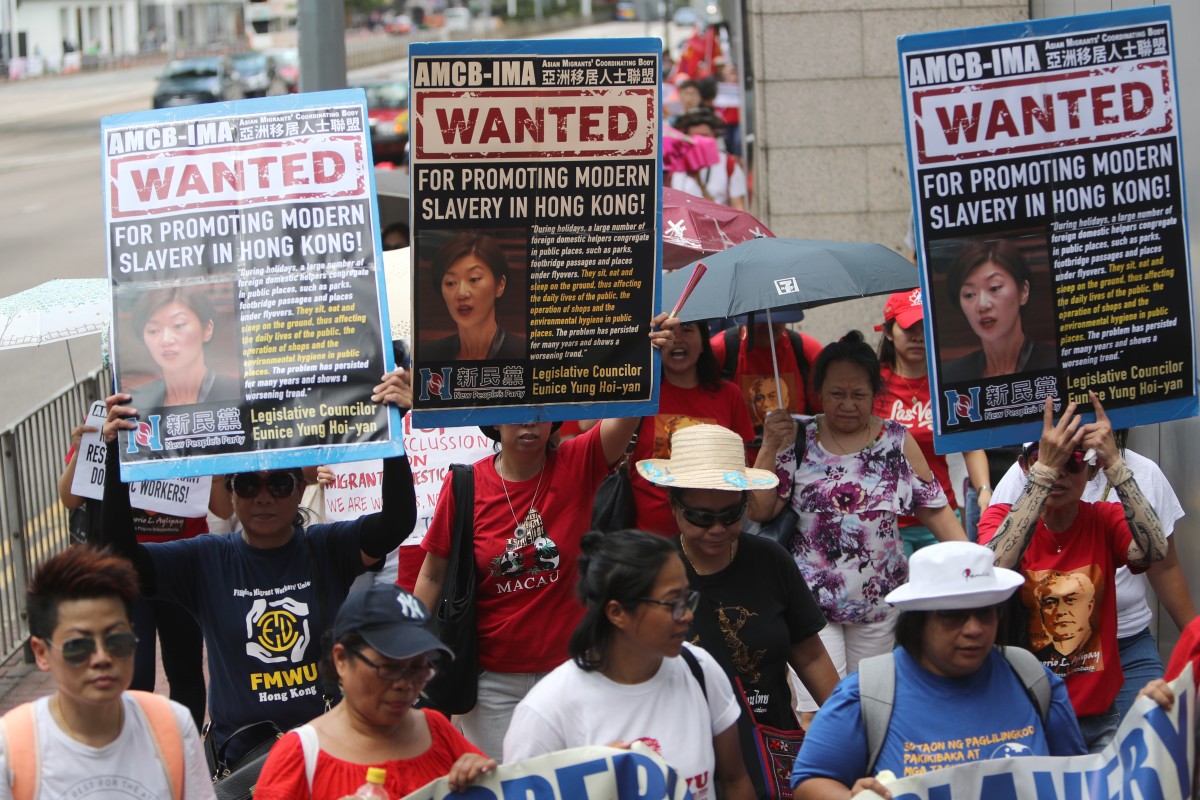
Each week, two of our readers debate a hot topic in a parliamentary-style debate that doesn’t necessarily reflect their personal viewpoint. This week …
 Lawmaker Eunice Yung of the New People's Party is under fire for her remarks about domestic workers.
Lawmaker Eunice Yung of the New People's Party is under fire for her remarks about domestic workers.Joyee Au Yeung, 18, University of Pennsylvania, United States
Yes, I believe so. Racial slurs and stereotypes are common in Hong Kong, despite the city’s status as “Asia’s World City”.
Some Hongkongers openly criticise or insult South Asians and Filipinos, and do not show any remorse about their behaviour. People from India or Pakistan, for instance, are often called ah chah, a derogatory term similar to the word gweilo, which is used to describe Caucasians.
In addition, many minorities find it difficult to fully integrate into Hong Kong society. They are often thought of as belonging to a lower class, and they face a lot of discrimination. Those who cannot speak Chinese struggle to find jobs, or earn very little for the work they do. These stereotypes are passed down from one generation to another, so racism continues to be a big problem in Hong Kong.
There is also racism against black people in Hong Kong. They are referred to as “black ghosts” in Cantonese. Many people think they don’t belong in this city. Their small numbers in a mainly ethnic Chinese city encourages discrimination against them.
Some local children are taught from an early age to be careful about interacting with their peers from different backgrounds. South Asian children, who look different or have different lifestyles compared to Chinese kids, might face bullying in school.
On the surface, it might look like Hongkongers get along well with people from other ethnic groups, but life here can be tough for many minorities. If we want to truly live up to being Asia’s World City, we need to be able to welcome anyone, regardless of their race or skin colour.
Heather Ng, 17, YMCA of Hong Kong Christian College
No. Hong Kong is home to people from all over the world. It has a population of more than seven million people, and expats make up 4.1 per cent of that number. People are attracted to the city for many reasons – its work ethic, education standards, prosperity, and sometimes simply because it’s Hong Kong.
The city has migrants from many countries and regions, including Korea, the Philippines, Europe, the United States, and the Middle East. Hong Kong is still mainly Chinese, but the people from many cultures who live alongside each other have influenced the city’s lifestyle.
People from many religions live in Hong Kong and they have their own places of worship. The city’s restaurants serve almost every type of cuisine. French, Western, Italian, and Halal eateries are everywhere, because people are becoming more open-minded and adventurous about their eating habits.
We have introduced legislation which protects ethnic minorities. The 2008 Race Discrimination Ordinance protects people of all races from discrimination and harassment. This gives ethnic minorities the same rights to as many opportunities in life as the ethnic Chinese population. They are to be judged on their capabilities and employment history, not on their race or the colour of their skin.
Social media has also played a big role in promoting the idea of inclusiveness in society.
Hong Kong is a trading hub and international financial centre which is in constant contact with countries around the world. Here, race, religion or social background does not influence business transactions.
There is a saying that corruption knows no colour, but I think a more accurate expression in Hong Kong is that money knows no colour – skin colour, that is.
